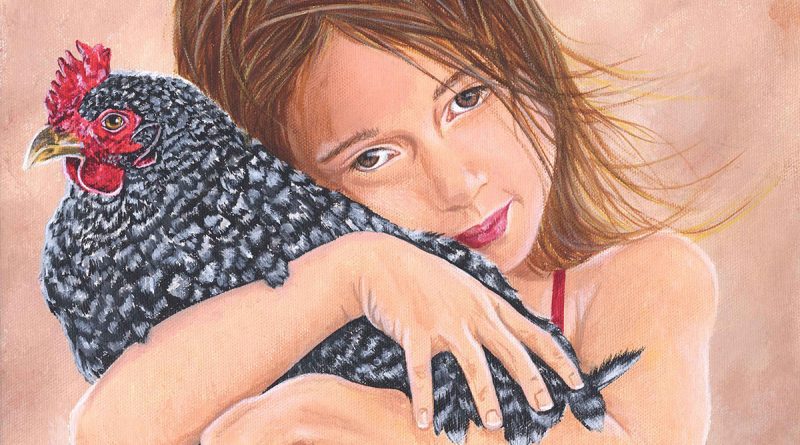Disney’s Animal Kingdom “has the opportunity to present visitors with a magical, meat-free menu.”
Image by Twyla Francois
In 2020, the Walt Disney Company released its Magic of Disney’s Animal Kingdom docuseries, which details the park’s efforts to care for the animals in its keep. In one of the series’ most gripping installments, Disney veterinarians performed a lifesaving surgery on a hen named Popcorn. The intensity of the procedure, and its performance on a garden-variety chicken, may have struck some as extravagant, even unnecessary. Yet to quote one of Popcorn’s keepers, “It really doesn’t matter if you were born (in the park) or if you’re a rescue. Every animal gets the same love and care here at Disney’s Animal Kingdom.”
Unfortunately, this credo does not extend to the hundreds of thousands of chickens consumed at the theme park each year. Steps away from her recovery coop, Popcorn’s cousins are fried at Restaurantosaurus, one of dozens of Animal Kingdom food locations that serve almost exclusively meat-based entrées. Irony, thy name is Animal Kingdom.
Animal Kingdom is no ordinary theme park full of rides and attractions. The park hosts thousands of live animals, ranging from the primordial Komodo dragon to the scintillating purple starling. These animals form the centerpiece of the park’s mission of celebrating wildlife and promoting conservation. It is the sixth-most visited theme park in the world, with pre-pandemic attendance reaching nearly 14 million guests annually.
Last fall, we were among those millions. As we stepped off our Kilimanjaro Safaris jeep, a Disney cast member restated the park’s mission and encouraged us to adopt a conservation ethos. She concluded the ride by reminding us that “one huge thing (we) can do to help animals is skip single-use plastics like straws.” We were shocked that her sentence did not end with “don’t eat them.”
Beyond banning single-use plastics (as the park has done since its 1998 opening), Animal Kingdom has the opportunity to present visitors with a magical, meat-free menu.
Disney should have little room to argue against such a change. Plant-powered menus would reduce the slaughter of animals for meat and shrink the company’s environmental footprint. Leading meat substitute brand Beyond advertises its burger production as using 99% less water, outputting 90% less greenhouse gases, and occupying 93% less land than standard beef burgers’. Its competitor Impossible claims similar numbers. Further, the meat substitutes market (and, correspondingly, supply) is growing rapidly, with a projected compound annual growth rate (CAGR) of 7.2% from 2021 to 2027 —plenty to feed Disney’s hungry hordes.
As more people adopt plant-based diets — many motivated by animal welfare concerns — Animal Kingdom should allow guests to take part in conservation right at their Disney dining tables. Disney has a chance to make real change, to follow in the footsteps of prominent restaurants around the country in meeting its moral obligation to become meat-free — not only for Popcorn’s cousins, but for the planet at large.
It is time for Animal Kingdom to embody its motto of “celebrating all living things” by removing the animal kingdom from its menus.
Daniel O’Brien is a PhD candidate in physics at Georgetown University. Sarah Fisher is a JD candidate at William & Mary Law School. The two last visited Disney World in October 2021.
What Can I Do?
Feedback regarding the Animal Kingdom Theme Park can be sent to Disney World at:
guest.services@disneyworld.com
From United Poultry Concerns, Feb 7, 2022.



